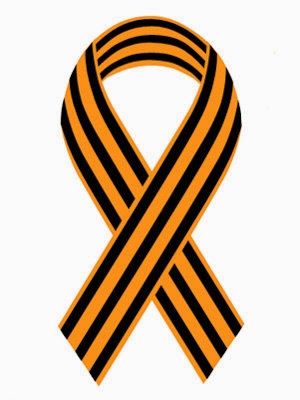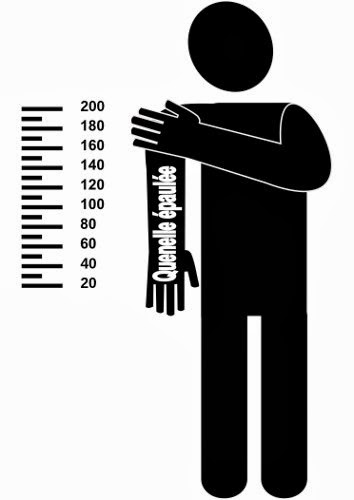Friday, February 28, 2014
Statement by the Russian Ministry of Foreign Affairs regarding the events in Ukraine
The agreement on the settlement of the Ukrainian crisis, which was signed on the 21 February and certified by the German, Polish and French Foreign Ministers, is still not being fulfilled. Militants have still not laid down arms, they have not freed administrative buildings, or announced their intention to “make order” in all the Ukrainian regions. There are threats of physical reprisals, as the President Viktor Yanukovych emphasised in his statement today.
The agreement to jointly investigate acts of violence and the obligation to create a national unity government, have been forgotten. Instead, as Maidan puts it, a “government of champions”, which includes representatives of national extremists, is being created.
The agreements about constitutional reform, which should precede presidential elections according to the Agreement of the 21 February, have been forgotten. We are convinced that only a constitutional framework, ensuring the interests of all responsible political forces and all regions of Ukraine, corresponds to the interests of national peace and stability in the long term.
We appeal to those western partners, who initially supported the opposition and who supported the Agreement of the 21 February, to become fully aware of their responsibility for its implementation. The statements that this document has already played its role are not serious. All the taskslisted and agreed on the 21 February, have not lost their meaning, in fact they have become even more topical to prevent further polarisation of the community as a result of radical actions.
We must stop interference in church affairs, the besmearing of Orthodox temples, memorials in honour of the heroes of the Great Patriotic War, who freed Ukraine from fascism, and other monuments.
We are seriously concerned about the cancellation of the Law on the Foundations of the State Language Policy in violation of Ukraine’s international obligations, which leads to further deprivation of the rights of minorities, restriction of the freedom of mass media, bans on the activities of individual political parties.
We currently note frequent appeals to Russia,by western countries, for cooperation about issues related to the situation in Ukraine. We proposed this long ago, long before this crisis ever entered its hot phase, however, at the time our colleagues were not disposed towards this.
Nevertheless, we are ready to interact, understanding clearly that it must be done honestly, based on the ability not only to agree, but also to fulfil the agreements, which should take into account the interests of all the Ukrainian people, as well as all partners of Ukraine. The implementation of obligations under the Agreement of the 21 February would become an important step along this path.
The attempts to replay agreed actions unilaterally every time, the lack of any wish to perceive the real situation as it is, never leads to anygood. When NATO starts reviewing the situation in Ukraine, it sends the wrong signal. It even seemed appropriate for the NATO Secretary General to mention that “Ukraine’s membership of NATO is not an urgent priority of the Ukrainian leadership”. Does this mean that membership should be a priority, but not an urgent one? They are attempting to decide for the Ukrainian people again.
We insistently recommend that everybody should refuse provocative statements and respect the out-of-bloc status of Ukraine, which is formalised in its Law on the Foundations of Domestic and Foreign Policy.
27 February 2014
The agreement to jointly investigate acts of violence and the obligation to create a national unity government, have been forgotten. Instead, as Maidan puts it, a “government of champions”, which includes representatives of national extremists, is being created.
The agreements about constitutional reform, which should precede presidential elections according to the Agreement of the 21 February, have been forgotten. We are convinced that only a constitutional framework, ensuring the interests of all responsible political forces and all regions of Ukraine, corresponds to the interests of national peace and stability in the long term.
We appeal to those western partners, who initially supported the opposition and who supported the Agreement of the 21 February, to become fully aware of their responsibility for its implementation. The statements that this document has already played its role are not serious. All the taskslisted and agreed on the 21 February, have not lost their meaning, in fact they have become even more topical to prevent further polarisation of the community as a result of radical actions.
We must stop interference in church affairs, the besmearing of Orthodox temples, memorials in honour of the heroes of the Great Patriotic War, who freed Ukraine from fascism, and other monuments.
We are seriously concerned about the cancellation of the Law on the Foundations of the State Language Policy in violation of Ukraine’s international obligations, which leads to further deprivation of the rights of minorities, restriction of the freedom of mass media, bans on the activities of individual political parties.
We currently note frequent appeals to Russia,by western countries, for cooperation about issues related to the situation in Ukraine. We proposed this long ago, long before this crisis ever entered its hot phase, however, at the time our colleagues were not disposed towards this.
Nevertheless, we are ready to interact, understanding clearly that it must be done honestly, based on the ability not only to agree, but also to fulfil the agreements, which should take into account the interests of all the Ukrainian people, as well as all partners of Ukraine. The implementation of obligations under the Agreement of the 21 February would become an important step along this path.
The attempts to replay agreed actions unilaterally every time, the lack of any wish to perceive the real situation as it is, never leads to anygood. When NATO starts reviewing the situation in Ukraine, it sends the wrong signal. It even seemed appropriate for the NATO Secretary General to mention that “Ukraine’s membership of NATO is not an urgent priority of the Ukrainian leadership”. Does this mean that membership should be a priority, but not an urgent one? They are attempting to decide for the Ukrainian people again.
We insistently recommend that everybody should refuse provocative statements and respect the out-of-bloc status of Ukraine, which is formalised in its Law on the Foundations of Domestic and Foreign Policy.
27 February 2014





